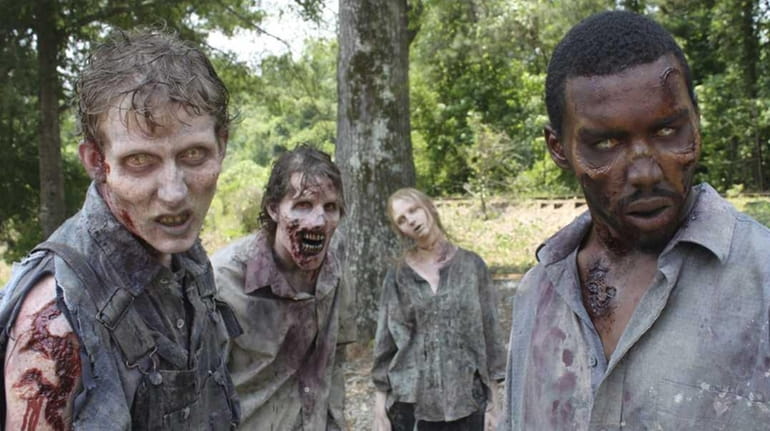'The March' review: He had a dream

Rev. Dr. Martin Luther King Jr., head of the Southern Christian Leadership Conference, speaks to thousands during his "I Have a Dream" speech in front of the Lincoln Memorial for the March on Washington for Jobs and Freedom, in Washington. Actor-singer Sammy Davis Jr., is at bottom right. (Aug. 28, 1963) Credit: AP
THE DOCUMENTARY "The March"
WHEN | WHERE 9 p.m. Tuesday on WNET/13
WHAT IT'S ABOUT As a singular event in American history, the 1963 March on Washington for Jobs and Freedom -- which took place 50 years ago tomorrow, gelled the entire Civil Rights movement; led to landmark legislation within a year's time; gave posterity a speech for the ages ("I have a dream"); and struggled mightily to even happen.
This broadcast, narrated by Denzel Washington, weaves together the threads of that complex story within the context of the moment: The movement seemed to have stalled in Birmingham, where Commissioner of Public Safety Bull Connor was turning fire hoses and dogs on protesters, while the Kennedy White House appeared "terminally" reluctant to do anything. Then, on June 12, 1963, Medgar Evers -- in Jackson, Miss. working to overturn segregation at the University of Mississippi -- was murdered in his driveway. "The March" is filled with accounts by participants and organizers -- including Rachelle Horowitz, John Lewis, Andrew Young, Jack O'Dell, Clarence B. Jones, and Norman Hill -- but the testimony of Martin Luther King Jr. remains as ever the most powerful and poignant reminder of that long-ago day.
MY SAY "The March" doesn't try to place its subject too deeply within the long history of civil rights -- not enough time here, and that's already been done exceedingly well by PBS' 1987 landmark "Eyes on the Prize," which ran 14 hours. (When you have a minute, check out that remarkable series, or at least sample it.) "The March" establishes how the event became a symbol of transformative power. The march didn't just change history, but seemed to change people, particularly the 250,000 who were there. Diahann Carroll, for example, suggests that for the first time in her life she was "clear about being an American and being a black American. What Dr. King was saying was really so simple." Lavishly illustrated with archival footage, much of it rare, "The March" makes it almost easy to forget that words -- not to mention the one man who said them -- were the real stars that day.
BOTTOM LINE Excellent, exhaustive.
GRADE A

